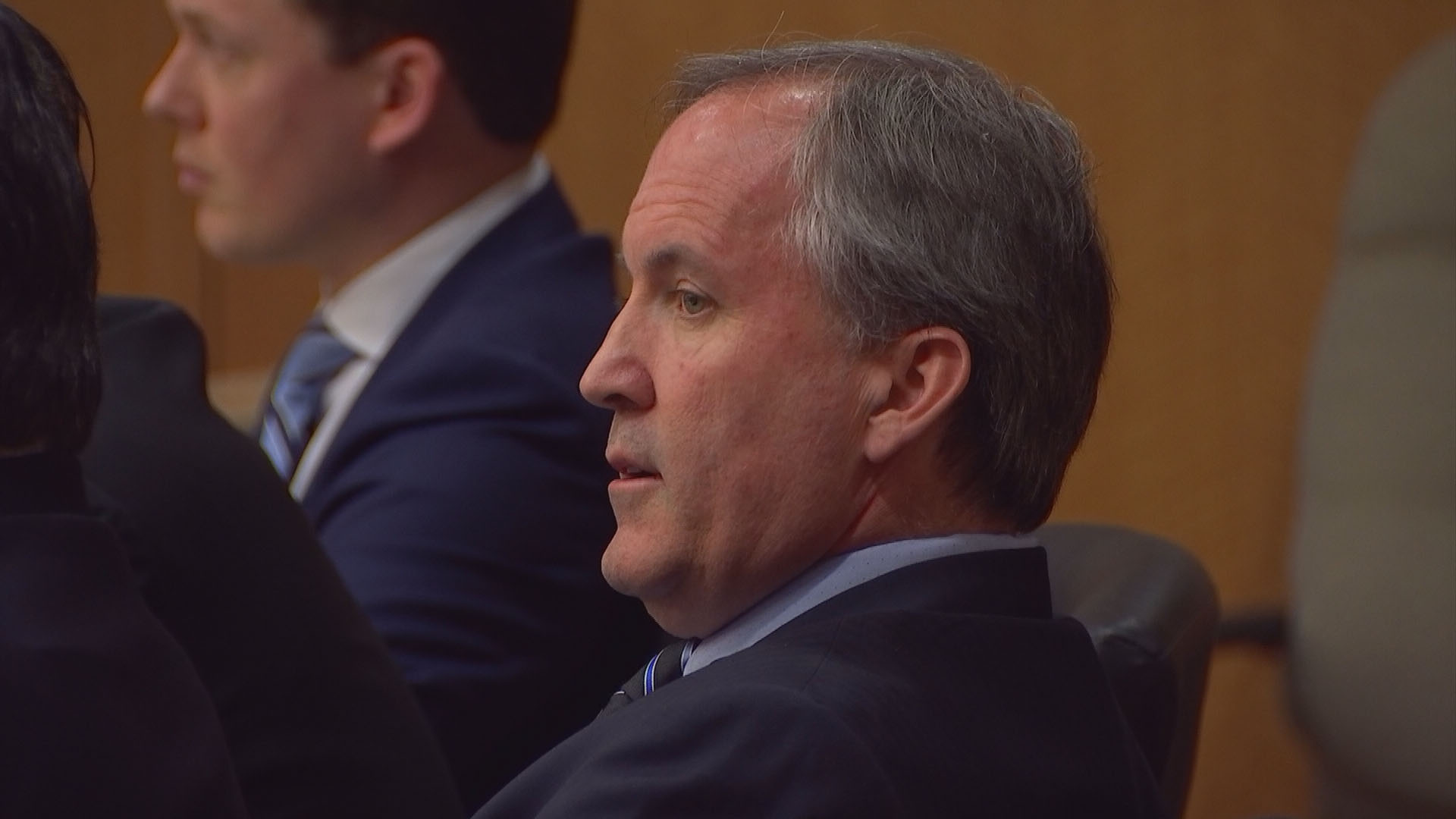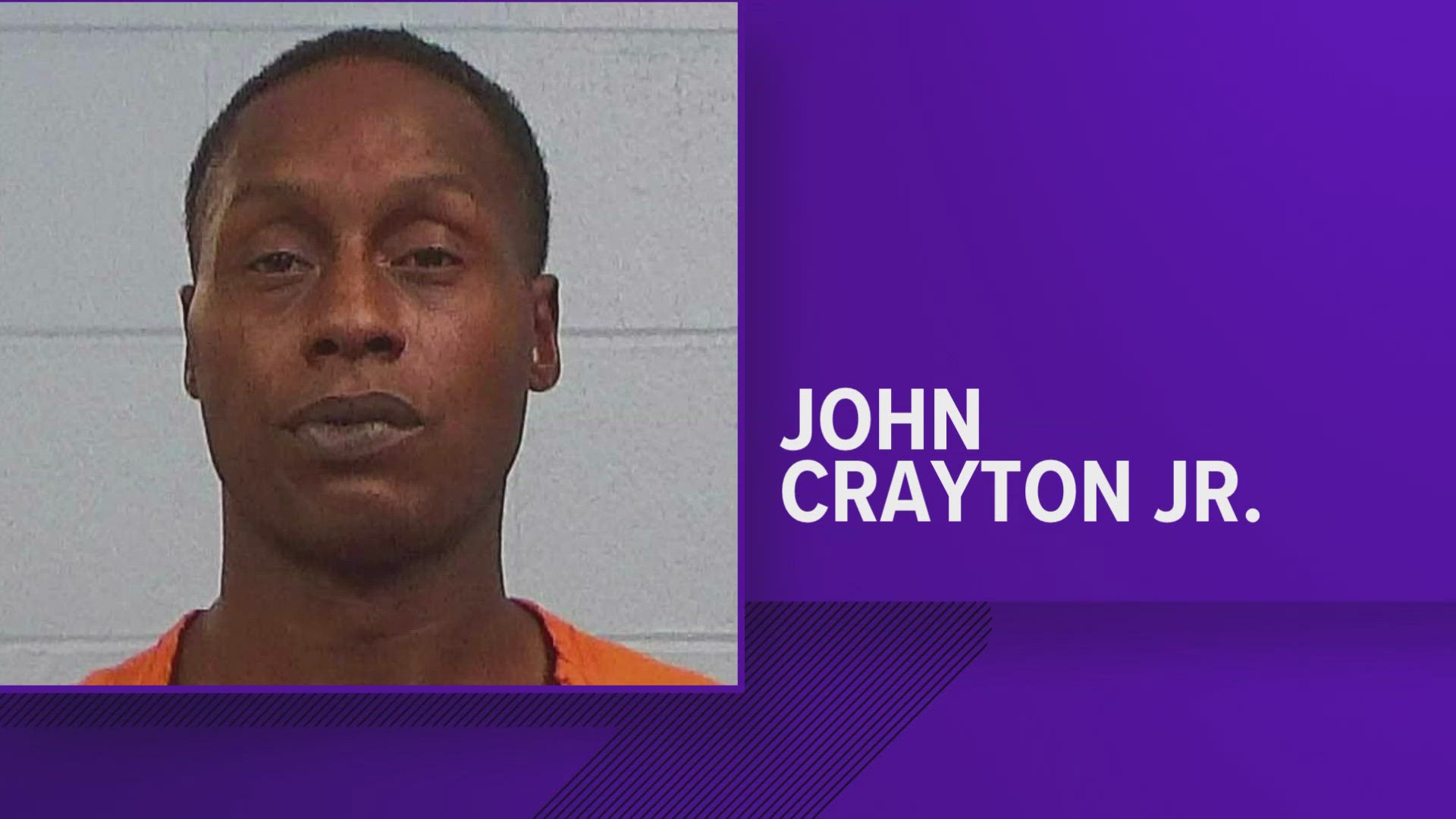Attorney General Ken Paxton learned Thursday that he'll be tried not just once but twice.
He was in court when the special prosecutors announced Thursday that they plan to try him first on the third-degree failure to register as an investment advisor indictment. Then they plan to immediately try him on the twin first-degree securities fraud cases.
“There's nothing in common except the defendant,” special prosecutor Kent Schaffer said after the hearing. "So for people who are sitting on a jury it’s a much more confusing situation."
Paxton’s attorneys made their displeasure apparent during the hearing.
Dan Cogdill, one of Paxton’s attorney, said he had been led to believe by special prosecutor Brian Wice that there would be one trial.
“That either double or triples the expense to Collin County,” Cogdill said. “I think from a judicial resources standpoint given the fee structure that’s in place in this case that’s absurd. We are not opposed and indeed we request that they be tried together.”
Jury selection is slated to begin in April. The first trial would start May 1. However, the special prosecutors said the decision was theirs alone.
Of the decision to try them separately, Schafffer said the failure to register case is a much more straight-forward case.
The securities cases involves “multiple witnesses and multiple witnesses,” Schaffer said.
“It’ll be a much longer case,” he said.
In the securities fraud indictments, Paxton is accused of convincing others to invest money in McKinney-based technology Severgy without disclosing that he was being paid a commission by the company. The failure to register charge stems from his work with a McKinney investment advisor.
The special prosecutors were in court Thursday asking a judge to move the case of out of Collin County. They contend there’s been an orchestrated, unprecedented effort to taint the county’s jury pool.
“There were extraordinary and unusual things that were done in order to persuade people to form an opinion based on things outside of the courtroom,” Schaffer said.
The special prosecutors called several witnesses in their attempt to try to prove their condition that the Paxton team and his supporters launched a war to convince the Collin County jury pool that the prosecution was politically motivated and their case built on quicksand.
First up to testify was a local TV reporter who was asked about his interview earlier this month with former presidential candidate Rick Santorum. Santorum criticized state District Judge George Gallagher, who is presiding over that case, during the interview. He also called the prosecution a “political vendetta.”
The special prosecutors put former Houston TV reporter-turned crisis consultant Wayne Dolcefino on the stand to testify.
Dolcefino acknowledged that he had been paid as much as $7,000 to do research work for the Paxton legal team. In the course of that work, he came into position of a confidential Texas Rangers report that the then turned over to a conservative blogger with watchdog.org. That was a violation of state discovery laws.
He denied that he had done so at the behest of the Paxton legal team.
“Can you recall how animated I was when I found out you had disseminated that report?” Cogdill asked.
“You weren’t happy with me,” he said. “I had no idea those reports weren’t public.”
Dolcefino denied that he was part of any conspiracy to try to taint the jury pool. He also called himself a “taxpayer watchdog” and said he thought the public that the right to see the documents.
He also said that based on what he had seen in the documents, he wasn't “impressed” with the investigation.
“I just don’t think the news coverage of this case has anything to do with the facts of what I read in the grand jury report,” he said.
The final witness to testify was Tom Dailey, the business manager for WBAP-AM. He testified that his station ran six spots on one day in November. The spots cost about $2,000. They were paid for by watchdog.org, the same site that obtained the Rangers report.
Those ads attacked state Rep. Byron Cook, a former Paxton friend and one of the two alleged victims in the Paxton securities fraud cases.
After hearing the testimony, Gallagher didn't rule on the motion. However, he indicated that he planned to move forward with picking a jury in Collin County.
As the Paxton cases move on toward a May date, there’s another ongoing legal battle over payments to the special prosecutors.
A Dallas-based appeals court recently halted about $200,000 in payments as they consider a lawsuit filed by a Collin County taxpayer. The Commissioners Court has already paid about $300,000 to the three special prosecutors.
Each of them is being paid an hourly fee of $300, a rate set by Collin County District Judge Scott Becker when the investigation started in 2015. Several commissioners have been outraged at the hefty legal tab.
“There are issues with district judges having unfettered and open access to the public treasury,” County Judge Keith Self said Thursday. “By state statute, the commissioners court has the responsibility to manage the public trust and to spend the money so we think there’s a constitutional issue there.”
New rules are set to go into place March 1 that would make it impossible for a judge to set such a high rate. The new rates are from $50 to 150.
Self also said he believes that the Paxton case should be tried in Collin County.
“Collin County citizens brought the case,” he said. “I believe that Collin County jurors need to be on the case. This is a big county. I think we can find jurors that would not be intimately involved in the case.”


